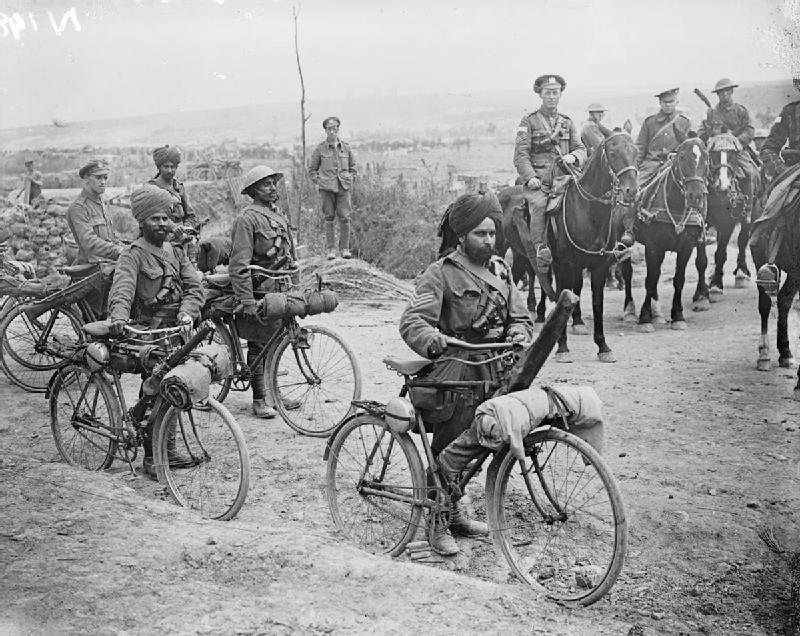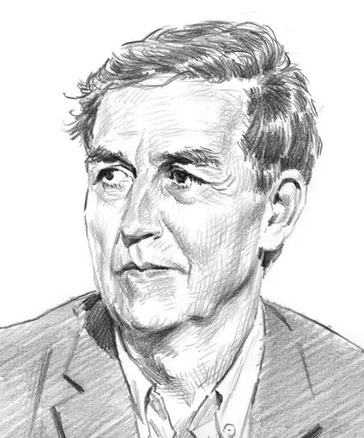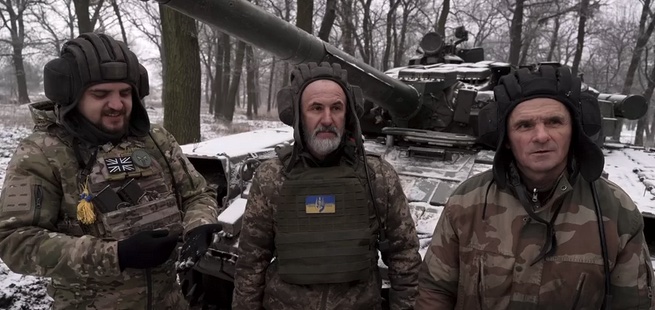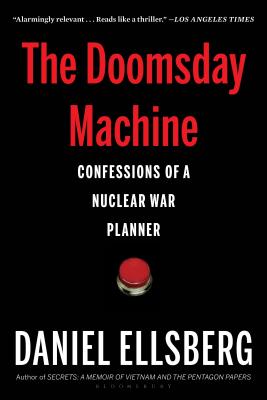Ever since Russia invaded Ukraine last February, the conflict there has inflicted great harm on the peoples of the Global South. It has sent food prices worldwide soaring. (In 2022, the number of people worldwide facing acute food insecurity reached 345 million.) And amid mounting evidence of the terrible effects of climate change, the divisions sparked by the war have stymied any effective global response… while the campaign by Western leaders to block Russia’s hydrocarbon exports has led to a resurgence of coal mining—and the warfighting itself has generated significant noxious emissions. We all know that the harshest effects of global warning fall on the peoples of the Global South.
So in this sense, the conflict in Ukraine is already “a war with clear global effects.” Does it make any difference to also call it a “world war”?
Talk of Ukraine already constituting World War III is everywhere. The intriguing French penseur Emmanuel Todd—widely judged the first person to predict the collapse of the Soviet Union—has a new book out about Ukraine called The Third World War Has Already Begun. Nuriel Roubini—the first economist to predict the 2008 financial collapse—agrees… And last March, that great global thinker Joe Biden was warning eloquently about the risks of a new world war…
Okay, I was kidding in calling Biden a “great global thinker”. But the warnings he uttered back in March seemed well-grounded, and heartfelt. (More recently, he seems to have concluded that he and NATO can do a lot more militarily to confront Russia in Ukraine than he thought wise back then. He and several NATO allies are now sending large, armored fighting vehicles to Ukraine… Uh-oh.) In Moscow, meanwhile, well-placed Russian officials close to Pres. Putin, like former Pres. Dmitry Medvedev here, have periodically issued warnings like, “The defeat of a nuclear power in a conventional war may trigger a nuclear war.”
All of which could sound disturbingly like a prospect of World War III?
But what do we mean when we call a conflict a “world war”? Is a “world war” along the lines of the two fought between 1914 and 1945 even possible in the post-Hiroshima world? And what difference does it make, anyway, if we conclude that World War III is about to happen, or is already here?
Let’s go to basics: What exactly is a “world war”? Back in the 20th century, the conflicts of 1914-18 and 1939-45 have both, within the Western discourse, been dubbed “world wars”… But the war of 1904-05 between Russia and Japan was not. Neither were the two wars the United States fought against national-liberation movements and their Communist allies in East Asia between the 1950s and 1970s. Also of note: In Russia, what Westerners call World War II is called the Great Patriotic War. (The Soviet Union, as it was then, lost more than 20 million citizens in that war, far more than any other country.)
We could pencil in a first definition of a “world war” as being a “hot” conflict in the post-1900 era that directly involves a number of European powers that have significant global empires. It was those empires that gave the conflicts their “world” dimension.
Both WW-1 and WW-2 saw massive battles in Europe. WW-1 also saw subsidiary campaigns in North Africa and West Asia. But until the arrival of large American forces in 1917, the major non-European component of WW-1 was the involvement of conscripted soldiers and laborers from the overseas empires of Britain and France.

Historian Richard Overy has noted of the war (Blood and Ruins, p.14) that,
The [British] white settler colonies contributed 1.3 million men, while from India 1.2 million were mobilized; African colonies supplied hundreds of thousands of labourers, of whom an estimated 200,000 died…
In the years after the 1918 armistice, that war was generally referred to in Western discourse as “The Great War”. It did not yet need a number. But in summer of 1939, Time magazine started calling it “World War I”, as it warned of the imminent prospect of a “World War II”…
That was prescient. WW-2 erupted a few months later. It turned out to be much more “global” than WW-1. As with WW-1 it saw major campaigns in Europe and around the Mediterranean Basin, along with the conscription and enrollment of millions of nationals from the British and French empires. (In 1945, the British Indian Army counted 3.35 million men. Indian troops served everywhere the British were fighting.) But because of the involvement of Japan, WW-2 also saw major campaigns waged throughout East Asia and the Pacific…
At the geopolitical level, WW-2 had three major consequences:
- It saw the emergence of the United States as a truly global power, capable of successfully projecting combined-arms fighting power nearly simultaneously across the world’s two large oceans.
- It saw the development and first use in warfare of the world-changing atomic weapon, accomplished by the Americans.
- It saw the financial and political exhaustion of the last two big remaining European empires. (Paying for, deploying, and supporting those 3.35 million Indians did not come cheap…)
(WW-2 had other consequences too. Principally the consolidation of Russia/ the Soviet Union as a significant Eurasian land power and, a few years after 1945, the consolidation of the Peoples Republic of China as a significant Asian land power. During WW-1 the two sizeable land empires in, or adjacent to, Europe—the Austro-Hungarian Empire and the Ottoman Empire—had been defeated and dismembered. The consolidation after WW-2 of two large land empires further east in Eurasia was historically significant.)
I think (and certainly hope!) that the history of the Cold War between the United States and the Soviet Union has shown us that in the age in which the major world powers have nuclear weapons, a direct confrontation between them should not even be contemplated. During the Cuban Missile Crisis of October 1962, as Dan Ellsberg (and others) have potently explained, humankind and the ecosphere that nurtures us escaped a mass extinction event only through a near-miraculous combination of good judgment, good planning, and just plain dumb luck.
The “discipline” of Mutually Assured Destruction may have, since at least 1962, prevented Washington and Moscow from engaging in direct combat with each other. But it also, in a sense, made the rest of the world relatively “safe” for smaller wars and confrontations, since decisionmakers in Washington and Moscow had developed numerous mechanisms that prevented their local allies from being able to “trip” them into direct engagement in those conflicts. The history of U.S. and Soviet involvement in, and diplomacy around, the various wars and confrontations in the Middle East and elsewhere provides numerous examples of this.
The current conflict in Ukraine falls into this same category of a “local” war. But it is being waged perilously close to Russia itself and at a perilous time in history in which (a) communication between Washington and Moscow is rusty and extremely dysfunctional, and (b) technological advances have cut the “reaction time” in which the decisionmakers in each capital have to make earth-shattering decisions down to nano-seconds.
Thus, what we should worry about the most, and the factor that should press us the hardest into seeking a speedy ceasefire/armistice in Ukraine, is the prospect that the conflict there might spark a direct, potentially nuclear, war between Russia’s and NATO’s forces.
That is a far clearer and more present danger than any (much more nebulous) prospect of all of humankind being in, or getting into, something called a “world war”.
A footnote on emmanuel Todd

I have, as noted above, serious criticisms of Emmanuel Todd’s contention that “We are already in a world war.” However, I find some of the arguments he deployed in his recent Figaro interview pretty interesting and worth reading. (You can find a decent, though partial, English translation of the interview here, and the full text in French is here.)
In the interview, Todd examined the interplay between military, economic, and more generally “cultural” trends in world politics. He noted that the Russians probably expected a speedy success for their initial military push into Ukraine, including the fall of Kyiv, and were surprised and disappointed when their offensive stalled far short of that. Similarly, he conjectured that the American side probably expected the speedy success of the harsh sanctions they slapped on Russia after the invasion… and they were similarly surprised and disappointed when that did not happen.
He noted that for Russia, the stealth encroachment that NATO had made into Ukraine over the preceding years posed an existential threat to the Russian homeland that they judged had to be repulsed… While for the United States, the evident failure of their February 2022 sanctions to bring Russia to its knees now poses an existential threat to Washington’s dominance of the world’s financial systems that similarly—because of the huge contribution this dominance makes to Americans’ wellbeing—has to be repulsed.
He continues:
No more than Russia, can [the United States] withdraw from this conflict. Thus from now on we are in a war without end, in a confrontation of which the result has to be the collapse of one or the other. The Chinese, the Indians, the Saudis, among others are delighted.
(That is my translation from the Figaro original.)
In the interview, the way in which Todd described the Ukraine conflict as being—from a global/economic point of view—”existential” for the United States jumped quickly over a number of intermediate steps that are probably in his longer book. I imagine one key intermediate step would have been to note that in response to the harsh anti-Russia sanctions that Pres. Biden imposed in late February, Russia was able to turn to alternative markets and payment systems that were not under U.S. control… And that it is the emergence of these alternative payments systems that now more broadly threatens the once-mighty global role of the U.S. dollar.
But I question, on two grounds, Todd’s argument that because of the dire global/economic consequences of pulling back from the confrontation in Ukraine, the United States cannot undertake such a withdrawal. Firstly, though global-financial considerations doubtless play some role in Pres. Biden’s national-security decisionmaking—as they have for every U.S. president since the country turned in a major way to the use of sanctions in its pursuit of foreign policy goals—still, I believe that solid military considerations, and particularly the goal of dominating the battle-space of all of Europe, continue to play the dominant role in Washington’s decisionmaking. And issues related to recreating a stable security regime for Europe such as existed during the latter 15 years of the Cold War, can certainly still be negotiated with Moscow. (Even if this cannot be achieved on the basis of unilateral NATO domination of the whole continent.)
Secondly, if Washington were to speedily pull back from the Ukraine conflict and throw its weight behind a ceasefire, it could most likely still retain the current position it has in world finance and probably also regain some of the ground there that has been pulled away from it by the Chinese and others over the past eleven months. In other words the recent dilution of American control over global financial mechanisms can still be substantially slowed and quite even to some extent reversed. Indeed, the sooner Washington digs itself out of its confrontation with Russia over Ukraine, the better its position in the financial world will be.
In sum, I disagree strongly with Todd’s contention that, for the United States, the stakes in the Ukraine conflict are existential, that we are in a war without end, and that therefore there is no hope of winning U.S. governmental support for a ceasefire. However, I found much of the rest of what he said in his interview thought-provoking enough that if I’m able to get hold of a copy of his book—maybe even in French? but better for me, in English—then I’ll read it with interest.




The closer protagonists get to the conflict they are trying to avoid, and this is borne out by history, the more out-of-focus they become. Every empire in history eventually faced the conflict they were trying to avoid – their own collapse. That applies equally today: the signs of world war are everywhere. The more convinced we become it will not happen (or is not happening) the more certain it becomes. There may be no solution: there is definitely no solution if the problem is denied.
https://patternofhistory.wordpress.com/
Very good essay. Following the link, I see that Emanuel’s reason for believing the Ukraine conflict is “existential” for the US is explained here: “If the Russian economy resisted the sanctions indefinitely and managed to exhaust the European economy, while it itself remained, backed by China, American monetary and financial controls of the world would collapse, and with them the possibility for United States to fund their huge trade deficit for nothing. This war has therefore become existential for the United States. No more than Russia, they cannot withdraw from the conflict, they cannot let go. This is why we are now in an endless war, in a confrontation whose outcome must be the collapse of one or the other.” I agree with Helena that it is important to challenge this which means challenging the US military-financial-media establishment. What is ‘existential’ for them is not the same as for the vast majority.
Les infos ici sur cette page sont bien intéressantes. J’ai vraiment bien aimé, un article qui est bien écrit et nous permet d’en savoir un peu plus sur le sujet. Bien vu !Amandine Luong / MELTY.FR